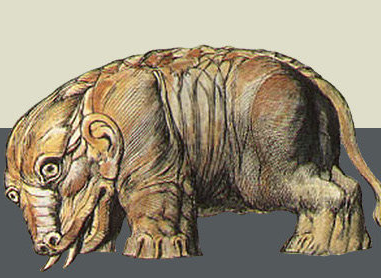Archive | Vol. 4/2011 | No. 3. In-Laws, Out-Laws : zur Parallelität staatlicher und familiärer Ordnungen
Haltern, Ulrich; Hnilica, Irmtraud [Publishing editor]
Content
Scientific article
Editorial / Haltern, Ulrich [Autor:in] … – 2011
Haltern, Ulrich; Hnilica, Irmtraud
Abstract:
Pages: 1-3
Scientific article
In the name of the brother: friendship and fraternality in ancient, medieval and early modern discourses
Kraß, Andreas
Abstract:
Focusing on Aristotle’s ‘Nikomachean Ethics’, Cicero’s ‘Laelius On Friendship’, Aelred of Rievaulx’s ‘On Spiritual Friendship’ and Michel de Montaigne’s ‘Essay on Friendship’, the following essay analyses the relationship of friendship and fraternality in premodern discourses. With reference to Jacques Derrida’s book ‘Politics of Friendship’, the essay suggests that the traditionally highly praised intimacy between male friends is based on the marginalisation of those who cannot be brothers because of their descent: women and strangers.
Pages: 4-22
Scientific article
The private is political, the political is private : correspondences between familial and political order in the 17th and 18th century – and today
Thomä, Dieter
Abstract:
This article examines three different ways of establishing connections between political models and the realm of the family. It scrutinizes and criticizes the patriarchal homology between political and private father figures (Filmer vs. Locke), casts light on the political bearings of sympathetic relations which are modeled based on maternal love (Adam Smith and Condorcet), and examines the revolutionary ideal of fraternity (Friedrich Schiller). The author distinguishes symbolic (paternal), synergetic (fraternal) and sympathetic relations and analyzes their bearings for modern democracies. He takes issue with the liberal separation between the private and the political, as it tends to lose sight of the marked correspondences between these spheres. He also questions the conservative idea of a family compensating for the discontent in the public realm. Gender concepts and generational issues turn out to be intertwined with theories of the political.
Pages: 23-56
Scientific article
Love, innocence and the state : love and politics : what political theory can learn from the movies
Kahn, Paul W.
Abstract:
This article illuminates the puzzling gap between political theory and political imagination. Theory is dominated by liberalism and its insistence on interests, reason, rights, individualism, and the social contract. Movies – and the social imaginations of the political they mirror – turn out to be completely different: Instead of interests, we find love, instead of the contract, we find sacrifice, and instead of the individual, we find the family. Turning to film therefore reveals liberal theory to suffer from a failure of the imagination.
Pages: 57-78
Scientific article
From out-law to in-law: piracy, law and family in Pirates of the Caribbean
Hnilica, Irmtraud
Abstract:
In order to analyse the relationship between piracy, law and family, the article takes a look at the popular Pirates of the Caribbean films. Hollywood turns out to link piracy with family; instead of forming the usually assumed contrast, both are closely intertwined entities. The film series can therefore be seen as an unorthodox revesion of the pirate's common juridical classification as the anti-social hostis humani generis. It becomes apparent that, surprisingly, family sometimes may develop from piracy.
Pages: 80-94
Review
[Rezension von: Gillian Abel (Hrsg.), Taking the crime out of sex work: New Zealand sex workers’ fight for decriminalisation. Jo Doezema, Sex slaves and discourse masters: the construction of trafficking. Victoria Harris, Selling sex in the Reich: prostitutes in German society, 1914-1945] / Pates, Rebecca [Autor:in] – 2011
Pates, Rebecca
Abstract:
Pages: 95-104
Review
[Rezension von: Doris Liebscher, Heike Fritzsche: Antidiskriminierungspädagogik. Konzepte und Methoden für die Bildungsarbeit mit Jugendlichen] / Türk, Lilian [Autor:in] – 2011
Türk, Lilian
Abstract:
Pages: 100-104
